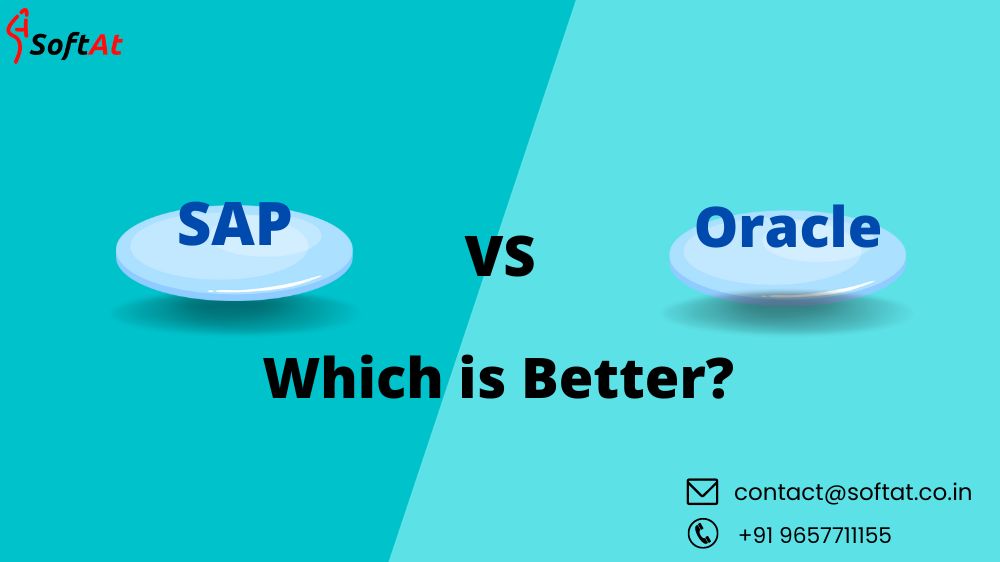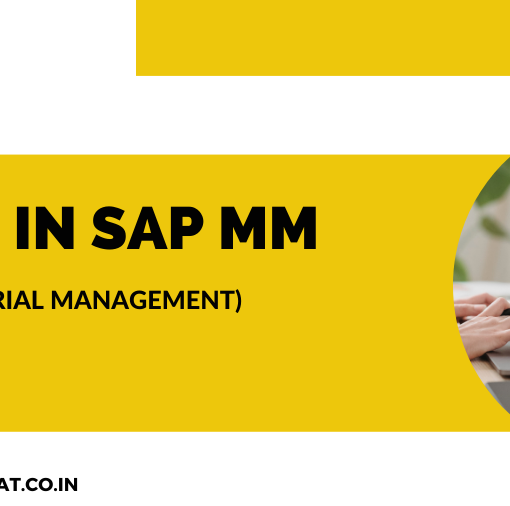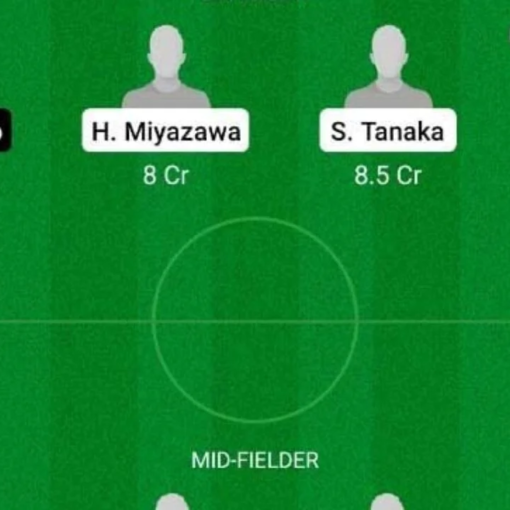Making specialized decisions is a crucial step in developing a career. Making decisions like Oracle or SAP might be difficult if you want to become a software engineer in the IT industry. It is not sufficient to study a certain piece of software or set of abilities because new technologies are being released onto the market every day. It would be ideal if you were familiar with a variety of related technology in the field you chose. ERP software development is one of several subfields of software development.
The international corporations Oracle and SAP specialize in ERP, CRM, SRM, PLM, and HCM software and offer business solution suites in these areas. Their enterprise resource planning software is the main source of income for both of them. Many products share pipeline codes that operate under Windows, Linux, and Unix. Keep reading to learn more about the firms’ respective areas of expertise.
It’s more crucial than ever to keep focused during your software investigation so that there are no unanswered questions when you sign the dotted line. Here, we contrast two widely used and well-known ERP software programs, Oracle and SAP. We’ve found via extensive study that Oracle outperforms SAP in a number of areas. Here is a detailed analysis of both of these high-level platforms:
Principal Employers and Oracle’s Impact on Industry
Over 250 major corporations already utilize Oracle, including eBay, LinkedIn, MIT, and Netflix. Oracle was utilized by several other titans, including Amazon’s AWS, but they now employ different service providers. You may further your career with organizations like Accenture, IBM, Capgemini, Tata Consultancy Services, Cognizant Technology Solutions, VMware, Deloitte, PwC, Emerson, Amazon, and AT&T with sufficient Oracle software experience.Due to the fact that the majority of businesses use their databases, Oracle has a very wide range of career opportunities. Various job profiles are available at Oracle, including those for developers, consultants, designers, architects, engineers, and data scientists. Oracle is a database management system used by businesses from practically every sector. Oracle is a great job option because of all these factors.
Principal Employers and SAP’s Use in Industry
Numerous well-known companies including 3M, BMW, Coca-Cola, Ford Motors, Airbus, and DHL are among SAP’s clients. Developer, consultant, designer, architect, engineer, and data scientist job descriptions are similarly comparable. The Corporate Suite, a cross-functional tool that provides optimum business collaboration across all domains, is a trademark of SAP. The reach of SAP extends to several business models across all sectors. EY, LTI, NTT Data, Atos, Schneider Electric, AstraZeneca, Dell, Robert Bosch, and Shell are significant employers for SAP profiles.
Comparison between SAP vs Oracle
Let’s compare Oracle and SAP’s primary markets to have a better understanding of each.
Application
Enterprise resource planning is the primary use of SAP. Oracle uses a wide spectrum of software and technological advancements in its applications.
Use
Businesses may get real-time management solutions from SAP. Business data is managed by Oracle.
Programming languages including PL/SQL, SQL, Pro*C, and C++ are used by Oracle. Languages including ABAP, C, and C++ are used by SAP.
Functional Sector
Oracle offers services relating to cloud infrastructure, analytics, database cloud services, hardware, control, MySQL cloud, security, identity, and compliance. SAP focuses on services pertaining to Business, Retail, Industry, Platform, Framework, and SaaS.
Business need
Both Oracle and SAP provide specialized software for specialized needs. They use SAP S/4HANA and Oracle EBS On-premises for production, distribution, sales, and warehousing. For accounting, finance, and human resources, use SAP Business ByDesign and Oracle JD Edwards.
Features Comparison
Accounting
ERP systems from SAP and Oracle both provide outstanding financial management features. Accounts payable, accounts receivable, and fixed asset management are all features that tied for first place. However, Oracle’s software succeeds in this division for a number of reasons.
In terms of risk management, this provider performs a little better than SAP. Oracle offers enhanced financial management, more reliable reporting, and integration with GRC regulations. Oracle takes great satisfaction in its risk management solutions, which enable it to enforce enterprise-wide compliance and automate some industry-specific compliance.
These instruments assist in stopping cash leaks and bring about a degree of policy enforcement that gives businesses peace of mind about the dangers they face. However, SAP’s risk management capabilities are still useful and may guide your company in identifying and comprehending risk elements.
Tools based on standard procedures are provided by Oracle ERP modules. The term “asset management to retirement” refers to the management of assets over their entire existence, from purchase to final disposal. Another option is “Transaction to Cash Position,” which again combines a point-of-sale strategy with long-term financial data.
Budgeting
In this comparison between Oracle and SAP, Oracle’s ERP system performs much better. The budgeting features in SAP’s software are rather basic and include management and execution of general planning.
Contrarily, Oracle offers a specific tool known as “Asset Lifecycle Management.” It helps you to take advantage of the full financial potential of your facilities and other equipment. You also receive a number of tools that take care of the standard budgeting requirements for any organization.
Here too, Oracle outperforms SAP’s foundational characteristics. While SAP will get the job done, Oracle’s sophisticated pricing features can be the difference-maker for your business. Your basic pricing may be adjusted by Oracle to account for market niche, currency, exchange rate, and more. Using predetermined rules, it may also control profit margins, refunds, and discounts.
Human Resources
Although Oracle is a solid option for HR administration, SAP goes above and beyond. Users may obtain essential data on all of the HR functions that SAP administers in one location. Employees benefit from a designated gateway that allows them to update their information whenever necessary.
The SAP ERP software also aids in payroll and provides e-recruiting capability to assist businesses in tracking staff retention and reducing attrition. Oracle has excellent reporting capabilities with visual representations that enable rapid communication, while perhaps not being as robust overall. If your business wants to base more of its HR decisions on data, this can be particularly significant. You may examine the past and anticipated future of your organization rapidly thanks to data visualization, which can assist you in understanding general patterns.
CRM
Both Oracle and SAP offer excellent CRM software, yet each system has advantages and disadvantages in particular areas. Oracle performs well overall but isn’t particularly good at any one item. SAP contains a number of very remarkable features in addition to several that are only adequate.
For instance, Oracle offers strong marketing assistance, enabling campaign management on a single platform. SAP does just alright in this area by offering cross-functional purchasing, marketing, and finance procedures. Budgets and campaigns may be planned, but Oracle’s structure is still superior.
Customer account management is a strong point of Oracle’s ERP, however SAP is superior in this area. On every front affecting the client, SAP has you covered. You may view your clients’ history with this product, which will help you approach lead creation more successfully.
Supply Chain Administration
While having a solid CRM is essential for retaining consumers, an effective supply chain is also crucial. We can see from the Oracle vs. SAP comparison that both ERPs offer comparable SCM tools, yet they still excel in distinct areas. Although the apps are scored equally, you should make sure that your perfect solution meets the demands of your company.
Both ERP systems do a decent job of handling distribution management, which gives data on warehouse profitability and handles other distribution chores. Each solution’s capability for processing purchase orders is equivalent. The “procure to pay” module from SAP is used by businesses to control purchases, enforce vendor selections, and analyze purchasing trends to inform future decisions. “Order to Cash” aids with the management of bids and other facets of vendor contracts and delivery.
Oracle has a process management solution called “supplier invoice to payment” for managing vendor relationships. This contains tools for creating contracts, registering suppliers, and paying invoices to make it simpler for businesses to get the supplies they require to run. The sourcing cloud and time and labor cloud solutions from Oracle offer transparency for these tracking protocols
Inventory Control
Inventory management, which is related to SCM, is essential to preserving a robust warehouse and overall supply chain. Although both ERP programs provide incredibly strong inventory management, their differences are sufficient to warrant a heading.
The cloud deployment of many inventory management systems nowadays is what makes them so helpful. Real-time data visibility throughout the organization is made possible by ERP’s SaaS evolution. This translates to more current stock levels and a clearer understanding of how your items move for both Oracle and SAP’s inventory management.
These elements contribute to a supply chain that is more effective, which eventually leads to happy consumers. While Oracle promotes increased productivity, SAP emphasizes how its inventory management tools minimize supply shortages.
Which is the best career Oracle or SAP?
Deciding between a career in Oracle or SAP depends on various factors, including your interests, skills, career goals, job market demand, and the industry you wish to work in. Both Oracle and SAP are major players in the enterprise software market, offering a wide range of solutions for businesses. Here are some key considerations to help you make an informed decision:
- Job Market Demand: Both Oracle and SAP have a strong presence in the market and offer ample job opportunities. The demand for Oracle and SAP professionals can vary based on location, industry, and specific product expertise. Research job listings in your desired location and industry to get a sense of the demand for each.
- Skillset and Background: Consider your existing skills and educational background. Oracle and SAP have different technologies and modules, so your background might align better with one over the other. For example, if you have a strong finance background, SAP’s ERP solutions might be more suitable.
- Industry Focus: SAP is particularly dominant in industries like manufacturing, retail, and logistics, while Oracle has a significant presence in industries such as finance, telecommunications, and technology. Consider the industries you are interested in working in and which software is more prevalent in those sectors.
- Product Specialization: Both Oracle and SAP have a vast product portfolio. Evaluate the specific products and modules offered by each company and determine which aligns with your interests and career goals.
- Long-Term Prospects: Consider the long-term trends and innovations in each company. Both Oracle and SAP are investing in cloud technologies, AI, and analytics. Assess which company’s future direction aligns better with your career aspirations.
- Training and Certification: Look into the availability of training and certification programs for the specific Oracle or SAP products you are interested in. Certifications can enhance your credentials and increase your chances of securing relevant job opportunities.
- Company Culture: Research the company culture and work environment of Oracle and SAP, as these factors can also influence your job satisfaction and career growth.
Ultimately, there is no definitive answer to which is the “best” career path between Oracle and SAP. Both companies offer rewarding career opportunities for skilled professionals. It’s essential to conduct thorough research, speak with industry professionals, and possibly gain hands-on experience through internships or projects to make an informed decision that aligns with your interests and career goals.
Is SAP better than Oracle?
Determining whether SAP is better than Oracle or vice versa is subjective and depends on various factors, including specific business needs, industry, company size, existing IT infrastructure, and individual preferences. Both SAP and Oracle are major players in the enterprise software market, each offering a wide range of solutions for businesses. Here are some key points to consider:
- Product Portfolio: SAP and Oracle offer extensive product portfolios, including ERP systems, customer relationship management (CRM) solutions, human resources management systems (HRMS), supply chain management (SCM) solutions, and more. The specific strengths and weaknesses of each product can vary based on the individual module and version.
- Industry Focus: SAP has a strong presence in industries like manufacturing, retail, and logistics, while Oracle is particularly dominant in industries such as finance, telecommunications, and technology. The industry focus might influence which solution is a better fit for a specific business.
- Integration Capabilities: Both SAP and Oracle offer integration capabilities with various third-party systems and applications. Assessing how well each solution integrates with existing IT infrastructure is crucial for a smooth implementation.
- Implementation and Customization: Consider the ease of implementation and customization options for each solution. Some businesses may find one system easier to implement and tailor to their specific requirements.
- User Experience: Evaluate the user experience and interface of each solution, as this can impact user adoption and overall productivity.
- Cost: Cost is a significant factor in any software decision. The total cost of ownership for either SAP or Oracle includes licensing fees, implementation costs, ongoing maintenance, and support.
- Cloud Offerings: Both SAP and Oracle are investing heavily in cloud technologies. Assess their cloud offerings and consider which aligns better with your organization’s cloud strategy.
- Support and Community: Research the support options and community resources available for each solution, as this can impact how quickly and effectively issues are resolved.
Ultimately, the “better” option depends on the specific needs and priorities of your business. Some organizations might find SAP’s offerings better suited to their requirements, while others may prefer Oracle’s solutions. It’s essential to conduct a thorough evaluation, possibly through a pilot or proof-of-concept project, and involve key stakeholders in the decision-making process to select the right software solution for your business.





